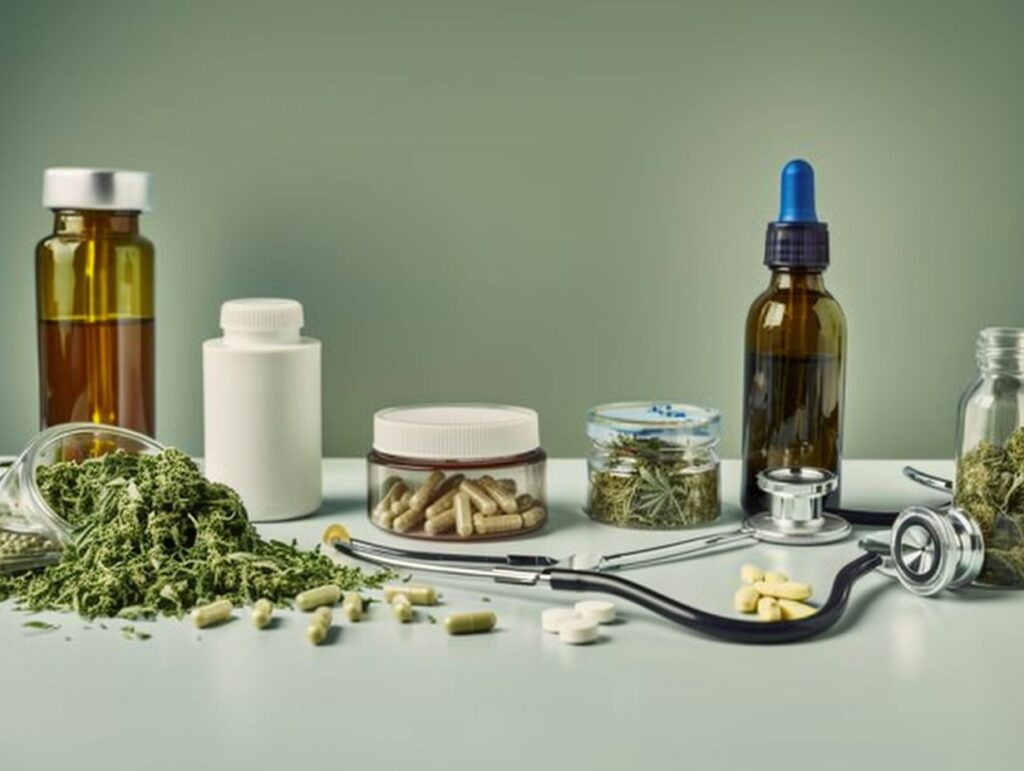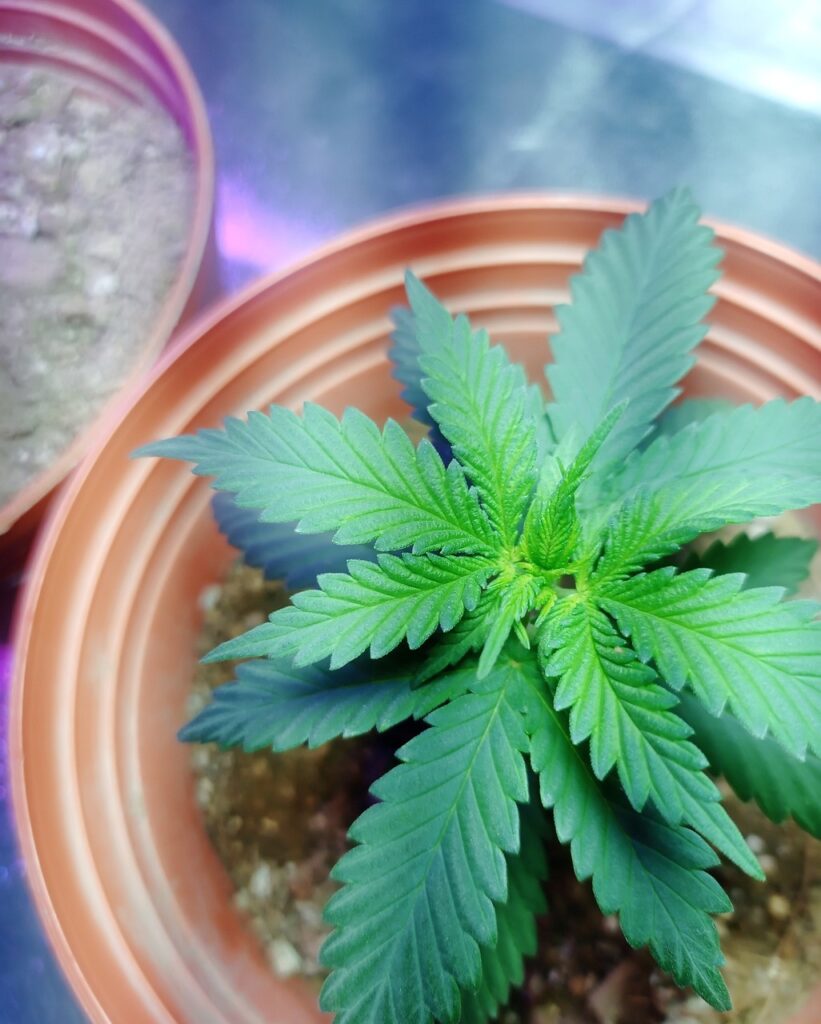
Our Innovative Offerings
Explore our range of hemp-based products and services designed to shape the future of sustainable construction.
Join Us in Building a Sustainable Future


Latest News
How hemp is being used in the medical industry
Curious about how hemp is making waves in the medical industry? From pain relief to anxiety treatment, this versatile plant is being utilized in various forms to address a range of medical conditions.
We will explore the different types of hemp, its uses in medicine, the various forms it comes in, potential benefits and risks, and the legal status of hemp in the medical field.
Discover how you can incorporate hemp into your medical treatment plan.
What Is Hemp?
Hemp, a versatile plant belonging to the Cannabis sativa species, has been utilized for centuries in various applications ranging from textiles to wellness products.
Its historical significance dates back to ancient civilizations like the Chinese, who used hemp fibers to make paper and textiles.
In modern times, researchers have delved into the plant’s potential for medicinal applications, discovering compounds like CBD that are known for their anti-inflammatory and pain-relieving properties.
Hemp is now recognized for its ability to support overall health and wellness through products such as CBD oils, topicals, and edibles.
What Are The Different Types Of Hemp?
Hemp can be categorized into different types based on its cannabinoid profile, with distinctions in the levels of THC (tetrahydrocannabinol) and other cannabinoids present.
These variations are crucial as they determine the therapeutic or recreational value of the hemp plant. For instance, hemp plants with higher levels of THC are considered marijuana and are often used for their psychoactive effects, while hemp varieties with low THC content and high CBD (cannabidiol) levels are valued for their medicinal properties. Other cannabinoids like CBG (cannabigerol) and CBN (cannabinol) also play significant roles in the overall benefits and effects of different hemp strains.
What Are The Uses Of Hemp In The Medical Industry?
Hemp has gained traction in the medical industry due to its potential health benefits and therapeutic properties, particularly in the realm of alternative medicine.
Many patients suffering from chronic pain, anxiety, epilepsy, and other ailments have turned to CBD, a compound found in hemp, for relief. CBD is known for its anti-inflammatory and analgesic properties, making it a promising option for managing various conditions.
CBD has shown potential in alleviating symptoms related to cancer treatment, such as nausea and neuropathic pain. Its ability to interact with the endocannabinoid system in the body has opened up a new avenue for healthcare providers to explore alternative treatment options for their patients.
Pain Relief
Hemp is increasingly recognized for its potential in pain relief, offering a natural remedy for managing chronic pain and reducing inflammation in patients.
Studies have shown that hemp contains compounds like CBD, which interact with the endocannabinoid system in the human body to alleviate pain. Whether it’s arthritis, neuropathic pain, or even post-operative discomfort, hemp products have shown promising results in providing relief.
Hemp-based products such as hemp CBD creams, oils, and capsules have gained popularity for their targeted application and ease of use in pain management. The anti-inflammatory properties of hemp make it a valuable option for individuals seeking natural alternatives to traditional pain medications.
Anxiety and Depression Treatment
The therapeutic uses of Hemp extend to anxiety and depression treatment, where its natural compounds have shown promise in alleviating symptoms and promoting mental wellness.
Hemp’s effectiveness in treating anxiety and depression lies in its interaction with the endocannabinoid system, which plays a crucial role in regulating mood and emotional responses. By influencing the production of neurotransmitters like serotonin and dopamine, Hemp helps maintain a balanced mental state.
Research indicates that Hemp can reduce levels of cortisol, the stress hormone, thereby calming the mind and reducing feelings of anxiety. Hemp’s anti-inflammatory properties may contribute to easing physical symptoms often associated with these mental health conditions, offering a holistic approach to overall wellness.
Skin Conditions Treatment
Hemp-based products have emerged as effective remedies for treating various skin conditions, leveraging their anti-inflammatory properties in topical creams and lotions.
The use of hemp in skincare treatments has gained popularity due to its ability to soothe irritated skin and reduce redness and inflammation. Hemp oil, rich in omega-3 and omega-6 fatty acids, helps to hydrate and balance the skin’s natural oils, making it a great option for individuals with eczema or psoriasis.
The antioxidants in hemp can protect the skin from environmental damage and premature aging. Regular use of hemp-infused products can promote a healthier complexion and address a range of skin concerns effectively.
Neurological Disorders Treatment

In the realm of neurological disorders, Hemp’s potential for conditions like epilepsy has sparked interest, leading to clinical trials to explore its efficacy and safety in managing these disorders.
Research in the field of epilepsy and other neurological conditions has shown promising results in utilizing Hemp-based products as a complementary treatment option. Studies have indicated that Hemp may have anticonvulsant properties that can help in reducing seizure frequency and intensity in patients with epilepsy.
Ongoing clinical trials are focusing on further understanding how Hemp interacts with the brain’s endocannabinoid system to potentially provide therapeutic benefits. These trials aim to provide more comprehensive data on the efficacy of Hemp in managing neurological disorders and improving the quality of life for patients.
Cancer Treatment
Studies have shown promising results regarding Hemp’s potential in cancer treatment, attributed to its medicinal properties and ongoing research into its anti-cancer properties.
Hemp, known for its therapeutic benefits, is being studied for its ability to inhibit tumor growth and promote cancer cell death. The compounds found in Hemp, such as cannabinoids, have been found to have anti-inflammatory and anti-oxidative properties, which are crucial in combating cancer.
Current studies are exploring the role of Hemp in alleviating cancer symptoms, improving patients’ quality of life, and potentially enhancing the effectiveness of traditional cancer treatments like chemotherapy. The growing body of evidence suggests that Hemp may hold great promise as a complementary therapy in the fight against cancer.
What Are The Different Forms Of Hemp Used In Medicine?
Hemp is available in various forms for medicinal use, including popular options like CBD oil, capsules, and tinctures that offer different methods of consumption and dosage control.
These diverse forms of hemp products provide individuals with a range of choices to cater to their specific needs and preferences. CBD oil, for instance, remains a versatile option that can be easily incorporated into daily routines, offering a convenient way to manage dosages.
On the other hand, capsules and tinctures provide alternative administration methods, allowing users to adjust their intake according to their unique requirements. Such flexibility in dosage and administration makes hemp-based pharmaceuticals accessible and adaptable to a variety of individuals.
CBD Oil
CBD oil, derived from Hemp through specialized extraction processes, is renowned for its therapeutic uses and potential health benefits across various medical conditions.
- One of the most common extraction methods used to obtain CBD oil is CO2 extraction, which involves using carbon dioxide under high pressure and low temperatures to isolate, preserve, and maintain the purity of the CBD compound. This method is preferred by many manufacturers due to its efficiency and ability to produce a high-quality product.
- Therapeutically, CBD oil has shown promising results in managing anxiety, chronic pain, epilepsy, and even symptoms of cancer treatment. Its anti-inflammatory properties make it a popular choice for conditions such as arthritis and multiple sclerosis.
Topical Creams and Lotions
Topical creams and lotions infused with Hemp offer targeted solutions for skin care, addressing inflammation and promoting skin health through direct topical applications.
They are known for their ability to provide deep hydration to the skin, helping to restore and maintain its natural moisture balance. Hemp-based topicals are rich in antioxidants and fatty acids, which can help combat free radicals and improve overall skin texture. These products have shown promising results in managing skin conditions such as eczema, psoriasis, and acne, thanks to their anti-inflammatory properties that soothe irritated skin and reduce redness. Regular use of Hemp-infused topicals can contribute to a more radiant, healthy-looking complexion.
Edibles
Hemp-infused edibles provide an alternative method for consuming Hemp-derived compounds, offering convenient dosage control and diverse options for integrating Hemp into dietary routines.
When it comes to dosage control, Hemp edibles allow individuals to easily manage the amount of Hemp they are consuming, making it simpler to track and adjust their intake based on their individual preferences and needs.
The range of edibles available such as gummies, chocolates, baked goods, and beverages offer a variety of choices for incorporating Hemp into daily consumption habits. This flexibility makes it easier for people to seamlessly integrate the benefits of Hemp into their lifestyle, whether they prefer a sweet treat, a refreshing drink, or a quick snack.
Capsules

Hemp capsules serve as a pharmaceutical-grade option for incorporating Hemp compounds into medical treatments, providing a convenient and precise delivery method akin to traditional prescription drugs.
The pharmaceutical aspects of Hemp capsules become particularly significant in terms of ensuring dosage precision and adherence to treatment protocols. Unlike some traditional pharmaceutical drugs that may have variations in dosages due to manual administration, Hemp capsules offer consistent and reliable dosing. These capsules are manufactured following strict pharmaceutical standards, guaranteeing their purity, potency, and effectiveness. Patients can rely on these capsules as a prescription alternative with confidence in their consistency and quality, making them a valuable addition to modern medical treatments.
Tinctures
Hemp tinctures offer a concentrated form of Hemp extracts, allowing for precise dosage adjustments and maximizing the health benefits derived from Hemp in a liquid solution.
The advantage of Hemp tinctures lies in their ability to provide users with the flexibility to easily customize their dosage according to individual needs. This customization ensures that one can tailor the amount of Hemp consumed to achieve optimal health benefits.
The concentrated nature of Hemp tinctures means that a small volume can deliver potent results, making them a highly effective and efficient way to incorporate Hemp into one’s wellness routine.
The ease of administration further enhances the appeal of Hemp tinctures, as they can be conveniently added to food or beverages for seamless integration into daily life.
What Are The Potential Benefits And Risks Of Using Hemp In Medicine?
The utilization of Hemp in medicine presents a spectrum of potential benefits, ranging from pain relief to anxiety management, while also necessitating a consideration of associated risks and side effects that are under scrutiny in ongoing clinical trials.
While numerous studies have highlighted Hemp’s effectiveness in alleviating chronic pain and reducing inflammation, it is essential to recognize the importance of safety evaluations in ensuring its widespread medical application.
The positive impact of Hemp on mental health conditions like anxiety and depression has been well-documented in various research trials, underscoring its potential as a natural alternative to traditional medications.
Researchers emphasize the need for continued monitoring of potential adverse effects, particularly in high doses or prolonged use, to mitigate any unforeseen health risks.
Benefits
The benefits of using Hemp in medicine encompass a broad spectrum of therapeutic uses, supported by ongoing research that highlights its efficacy in addressing various health conditions and promoting overall wellness.
Hemp has been found to possess anti-inflammatory properties, making it beneficial for managing chronic pain and reducing inflammation in conditions such as arthritis.
Studies have also shown Hemp’s potential in alleviating symptoms of anxiety and depression, offering a natural alternative for mental health support.
Hemp extracts have demonstrated neuroprotective effects, suggesting potential applications in treating neurological disorders. The rich profile of cannabinoids present in Hemp contributes to its diverse health benefits, making it a promising option for improving patient well-being in a holistic manner.
Risks
While Hemp offers promising benefits, it also comes with potential risks such as addiction and side effects that necessitate rigorous evaluation for FDA approval ensuring patient safety and treatment efficacy.
It is crucial for healthcare providers to carefully monitor patients prescribed with Hemp-derived medications to mitigate the risk of addiction. Side effects, ranging from dizziness to gastrointestinal disturbances, must be thoroughly documented to enhance understanding of Hemp’s impact on the body. Regulatory approval by the FDA involves stringent safety protocols and compliance measures to uphold standards of care and minimize adverse reactions. By prioritizing patient safety and treatment standards, the medical community can navigate the complexities of integrating Hemp into mainstream medicine responsibly.
How Can Someone Incorporate Hemp Into Their Medical Treatment?
Incorporating Hemp into medical treatment requires consultation with healthcare providers to determine suitable dosage, administration methods, and adherence to prescription guidelines ensuring accessibility and efficacy for patients.
This professional guidance is crucial as it ensures that the integration of Hemp is done in a measured and safe manner. Patients should always follow the prescribed dosage and administration methods to achieve optimal results and avoid any potential risks or side effects.
By working closely with healthcare professionals, patients can also address any concerns they may have and receive tailored advice that takes into account their individual health needs and treatment goals. Developing a thorough understanding of how Hemp fits into their overall medical regimen is essential for patients seeking the most effective and beneficial outcomes.
What Is The Legal Status Of Hemp In The Medical Industry?

The legal status of Hemp in the medical industry is subject to regulatory frameworks and FDA approvals that govern its production, distribution, and usage ensuring quality control, patient safety, and industry compliance.
These regulations play a crucial role in safeguarding consumers and patients, as they outline the standards for cultivation, extraction, and labeling of hemp-derived products. Adherence to these guidelines is essential to guarantee the potency, purity, and consistency of medicinal hemp products.
As the industry continues to evolve, stakeholders must stay informed about the latest updates in legal compliance and quality assurance practices to meet the stringent criteria set forth by regulatory bodies. Maintaining strict adherence to these industry standards not only enhances patient safety but also builds trust in the effectiveness and reliability of hemp-based therapies.
Frequently Asked Questions
1. How is hemp being used in the medical industry?
Hemp is being used in the medical industry for a variety of purposes, including pain management, anxiety and depression treatment, and seizure reduction. It is also being studied for its potential to treat conditions such as cancer and Alzheimer’s disease.
2. What are the benefits of using hemp in the medical industry?
The benefits of using hemp in the medical industry include its natural anti-inflammatory and analgesic properties, as well as its potential to reduce anxiety and regulate mood. It is also non-psychoactive, making it a safer option compared to other medications.
3. How is hemp different from marijuana in terms of medical use?
Hemp and marijuana are both derived from the cannabis plant, but they contain different levels of the psychoactive compound THC. Hemp has a much lower THC content, making it non-psychoactive and therefore more suitable for medical use.
4. Is using hemp in the medical industry legal?
The legal status of hemp in the medical industry varies by country and state. In many places, it is legal to use hemp for medical purposes, but it may require a prescription from a doctor or medical professional.
5. How can hemp be consumed for medical use?
Hemp can be consumed in a variety of forms for medical use, including oils, tinctures, edibles, and topicals. It can also be smoked or vaporized, but these methods may carry health risks and are not recommended.
6. Are there any potential side effects of using hemp in the medical industry?
In general, hemp is considered safe for medical use and has minimal side effects. However, some people may experience mild side effects such as dizziness, dry mouth, or changes in appetite. It is always recommended to consult with a healthcare professional before starting any new treatment.
The Benefits of Using Hemp in Construction
Here are some of the key benefits of using hemp in construction:
Sustainable and Carbon-Negative
- Hemp is a rapidly renewable crop that can sequester more CO2 per acre than trees during its 5-month growth cycle.
- Hempcrete, a hemp-based building material, can sequester 307 kg of CO2 per cubic meter, roughly equivalent to the annual emissions of 3 refrigerators.
- The use of hemp-based materials can help reduce the carbon footprint of construction, which accounts for 37% of global CO2 emissions.
Thermal and Moisture Regulation
- Hempcrete has excellent insulation properties, helping regulate indoor temperatures and reduce energy needs for heating and cooling.
- Hempcrete is a breathable material that can absorb and release moisture, helping control humidity levels in buildings.
Health and Safety
- Hemp-based materials like hempcrete are non-toxic and free of harmful chemicals like formaldehyde, promoting healthier indoor environments. [2][3]
- Hempcrete is fire-resistant, mold-resistant, and pest-resistant. [3]
Construction Efficiency
- Buildings made with hemp-based materials like hempcrete can be constructed 20-30% faster than those using traditional materials.
- Hemp blocks can be easily assembled like Lego, reducing construction time and waste.
Versatility
- Hemp can be used to create a variety of construction materials beyond just hempcrete, including insulation, panels, paints, coatings, and bioplastics.
While hempcrete has lower structural strength compared to concrete, it can be used for non-load-bearing walls and insulation, complementing other building materials. The main challenges to wider adoption of hemp in construction are the relatively new and underdeveloped supply chain, as well as lingering stigma around the hemp plant. However, as the industry continues to grow, hemp is increasingly seen as a promising sustainable solution for the construction sector.

Sources for more:
https://alpharoot.com/insights/hemp-in-construction-is-it-the-sustainable-material-we-need/
How is hemp being used in the building industry
Hemp is gaining increasing attention as a sustainable building material with a wide range of applications in the construction industry. Here’s a summary of how hemp is being used:
Hempcrete
The most prominent use of hemp in construction is hempcrete, a bio-composite material made by mixing hemp hurds (the woody core of the hemp plant) with lime and water. Hempcrete has several advantages over traditional building materials:
- It is a good insulator, helping regulate indoor temperatures and reducing energy needs for heating and cooling.
- It is fire-resistant, mold-resistant, and pest-resistant.
- It can absorb and release moisture, helping control humidity levels.
- It has a low carbon footprint, as hemp plants absorb CO2 during growth and the material can store carbon long-term.
- It is non-toxic and biodegradable.
Hempcrete is typically used as insulation or to form non-load-bearing walls, often in combination with a structural frame made of timber or other materials.
Other Hemp Building Products

Beyond hempcrete, hemp is also being used to create a variety of other construction materials:
- Hemp fiber can be used to make building panels, insulation, and even a hemp-based “wood” for flooring and other applications.
- Hemp-based paints, coatings, and sealants are emerging as sustainable alternatives to petroleum-based products.
- Hemp can be used to produce bioplastics for building components.
Challenges and Adoption
While hemp shows great promise as a building material, its adoption faces some challenges:
- The hemp industry is still relatively new, especially in countries like the U.S. where it was prohibited for decades. This makes the supply chain and processing infrastructure less developed compared to traditional materials.
- There is still some stigma and confusion around hemp due to its association with marijuana, which requires education and policy changes to overcome.
- Hempcrete and other hemp products can be more expensive than conventional building materials, at least in the short term as the industry scales up.
However, as concerns over the environmental impact of construction grow, hemp is increasingly seen as a viable solution. Countries like France, Germany, and Canada have already made significant strides in adopting hemp-based building materials. With continued innovation and policy support, hemp could become a mainstream sustainable option for the construction industry.
Learn Additional Skills:
https://yaleclimateconnections.org/2024/02/could-your-next-home-be-made-of-hemp/
https://hempfoundation.net/how-hemp-is-used-as-a-building-material/



